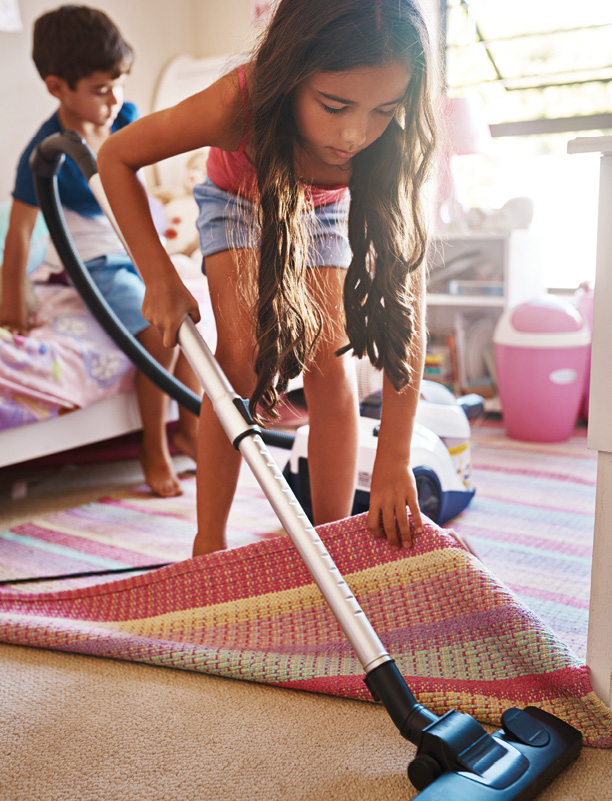
Coming Clean
Organization Skills for Kids
By Malia Jacobson
Does your child’s bedroom look like a tornado recently swept through? What about the backpack or school locker? If your pack-rat can’t seem to find homework projects, library books, or a favorite pair of shoes, it may be time to instill some basic organizational know-how.
Strong organizational skills serve children well through grade school, college, and beyond, and help avoid the daily stress of hunting down lost items – not to mention tardy slips, missed buses, and late classwork.
Research from the New York University Child Study Center shows that organizational skills training boosts school performance and reduces family squabbles in children with ADHD. And experts say that every child can learn to be more organized, beginning in toddlerhood.
Here’s how to get started, at any age.
TODDLER/PRESCHOOL YEARS 2-5
Model behavior
Do you complain about after-dinner cleanup or moan about making your bed? Your toddler will pick up on your attitude about organization, says behavioral psychologist Richard Rende, Ph.D. Model a positive attitude about daily tidying up to foster cooperation in tiny tots.
Children as young as 18 months can begin learning basic guidelines for organization (just don’t expect a spotless bedroom quite yet!). And because toddlers often enjoy clean-up, parents can take advantage of tots’ enthusiasm to begin instilling good habits. Start by setting a few simple family rules – for example, cleaning up one activity before starting another, or always putting dirty clothes in the hamper – and follow through. Young children can learn and sing a “clean up song” when it’s time to put toys away.
ELEMENTARY YEARS 6-12
Schoolwork shuffle
Homework assignments, permission slips, and other school paperwork can pile up for grade-schooler – and losing track of these school papers creates a hassle for both students and parents. Now’s the time to begin teaching children how to keep school items organized, says Karen Meadows, Ph.D., a school counseling supervisor. First, create a spot for school papers at home – a hanging file folder or wall file works well – as well as a special place for your child to put papers that need a parents’ attention, like permission slips or class newsletters.
Set a daily time for homework, and provide the tools your student needs to stay on track, like a timer and calendar. Help your child develop daily routines that support organization: emptying his or her backpack at the end of the school day, writing assignment due dates on the calendar, and chunking up big projects into smaller, more manageable tasks.
TEEN YEARS 13-18
Schedule sync
If anyone needs a well-ordered schedule, it’s a teenager: Between academics, after-school jobs, and extracurricular activities, a teen’s daily routine can be incredibly hectic. Parents can help teens learn vital organization skills to manage a busy schedule; just make sure teens are the ones doing the organizing to keep the focus on skill-building. “Collaborate with your teen to develop organizational strategies. Their buy-in is important. Teens are more prone to follow through with strategies if they’ve been a part of the decision-making process,” Karen says.
When it comes to bedroom cleanliness, teens can set their parameters while upholding certain family guidelines; the floor must be visible, for example, and any food wrappers or dishes need to be cleaned up daily. Visual cues can help a scattered teen stay organized, so invest in a white board or a large write-on calendar for a teen’s bedroom. And use teens’ love of all things tech to teach self-management skills using apps with daily schedule reminders, homework calendars, and task timers. Once teens clean up their act, Karen says, praise consistent progress. “The best way to always be organized is to stay organized!”










